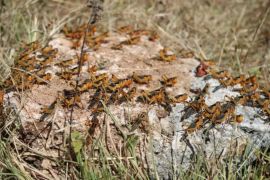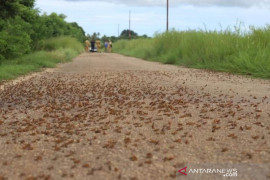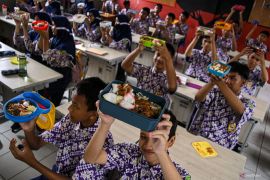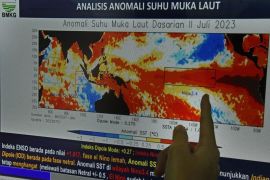"Substituting crops attacked by migratory locusts on Sumba Island is part of the provincial government's steps, so that farmers can continue to produce, and the economy is maintained," the office's secretary, Joaz Bily Oemboe Wanda, noted in his statement received here, Monday.
Wanda explained that migratory locusts do not attack all agricultural areas on Sumba Island but only certain locations.
The secretary highlighted that for affected areas, the government supports farmers to substitute the crops since in general, migratory locusts attack fibrous plants, such as sugarcane, corn, and rice.
"Thus, we are directing farmers that if corn is no longer suitable, we can plant other crops, such as yams and beans, to avoid migratory locusts' attacks," he explained.
He further noted that the office also allotted funds to support crop substitution and handling damages in plants due to migratory locusts or natural disasters.
"This year, we readied funds to support in terms of seed needs, so that the farmers' food availability is maintained," he explained.
Wanda noted that handling the impacts of locust swarms on Sumba Island is also supported by the relevant ministry and four district governments on the island.
To this end, the office is optimistic that the problem of locust swarms would be tackled, as massive handling efforts are being made in the field.
Earlier, in a written statement received on Sunday (March 5, 2023), Wanda stated that his office is cooperating with the Food and Agriculture Organization (FAO) and Gadjah Mada University, the University of Indonesia, and Bogor Agricultural University, in conducting research for tackling the problem of migratory locusts on Sumba Island.
Related news: NTT works with FAO, three universities to tackle locust swarms
Related news: Locust swarms continue to plague Southwest Sumba village
Translator: Aloysius Lewokeda, Raka Adji
Editor: Sri Haryati
Copyright © ANTARA 2023












